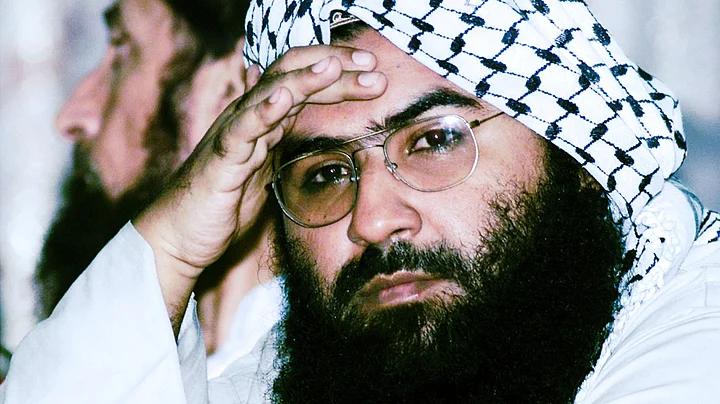Jaish-e-Mohammed Chief Masood Azhar's son and brother were among 44 members of the banned militant outfits taken into "preventive detention", Pakistan said on Tuesday, 5 March, amid mounting pressure from the global community to rein in the terror groups operating on its soil.
"It was decided (at a meeting) to speed up action against all proscribed groups. In compliance, 44 under observation members of proscribed organisations, including Mufti Adbul Rauf and Hamad Azhar, have been taken in preventive detention for investigation," the Interior Ministry said in a statement.
Later at a press conference, Minister of State for Interior Shehryar Khan Afridi confirmed that 44 people have been taken into custody as part of crackdown on militant groups.
Ministry of Interior Secretary Azam Suleman Khan said Hamad Azhar and Mufti Abdul Rauf were among those detained. Hamad is the son of Masood Azhar while Rauf is his brother.
Khan said a dossier shared by India with Pakistan last week also contained names of Rauf and Hamad.
The crackdown comes after the terror group claimed responsibility for the deaths of at least 40 CRPF jawans in Jammu and Kashmir’s Pulwama on 14 February.
Previous Attacks
As per the website of the National Investigating Agency (NIA), Asghar is a ‘most wanted’ terrorist in India.
Asghar is also a prime accused in the 2016 Pathankot attack. Investigative agencies had reportedly collected voice data records to establish a clear link between Asghar and the attackers.
Asghar is also responsible for the hijacking of Indian Airlines flight IC 814 on 24 December 1999. He was also accused of executing the attack on Parliament on 13 December 2001.
According to India Today, the Chilean police arrested a Pakistani citizen named Mohammad Rauf, mistaking him for Asghar in 2011. It was only after a CBI team interrogated the man in Santiago, was it revealed that he was not Asghar.
India Today also reported that Asghar had issued a threat to India just nine days before the Pulwama attack.
In footage accessed by India Today, Asghar addressed a gathering inside a mosque near Bahawalpur, Pakistan and said that “people will again remember Pathankot and Nagrota".
(With inputs from India Today)
‘Action Not Taken Under Pressure’: Pak
Afridi, however, said the action was not taken due to any pressure. "This is our own initiative...We won't allow the use of our soil against any country," he said.
Interior Secretary Khan said the action would be taken against all the proscribed organisations under the National Action Plan, which was formulated after an attack on an army school in Peshawar in 2014 that killed nearly 150 people, mostly children.
"This is across the board – we don't want to give the impression that we are against one organisation," he said.
"This is our own initiative...We won't allow the use of our soil against any country," he said.
Interior Secretary Khan said the action would be taken against all the proscribed organisations under the National Action Plan, which was formulated after an attack on an army school in Peshawar in 2014 that killed nearly 150 people, mostly children.
He said the crackdown will continue for two weeks and actions against the arrested members will be taken on the basis of evidence.
Responding to a question, Khan said Hafiz Saeed-led Jamaat-ud-Dawa and its charity wing Falah-e-Insaniat Foundation would be banned within 24 hours.
On 21 February, Pakistan government had announced that it had banned the JuD and FIF. However, according to the website of the National Counter Terrorism Authority (NCTA), which was updated on Monday, JuD and FIF are still under watch list.
The Interior Ministry statement also said that a high-level meeting was held on March 4 to implement National Action Plan (NAP). It said that actions against extremists will continue, as per the decisions taken in National Security Committee (NSC).
The move came a day after Pakistan on Monday promulgated a law to streamline the procedure for the implementation of the UN sanctions against individuals and organisations.
Interpreting the order, Foreign Office spokesperson Mohammad Faisal said the order means that the government has taken over the control of assets and properties of all banned outfits operating in the country.
The US last month asked Pakistan to “freeze without delay” the funds and other financial assets of the UNSC-designated terrorist networks and their leaders.
Pakistan is also under pressure from the Paris-based Financial Action Task Force (FATF) to deliver on its commitments to curb terror financing.
The FATF in June last year placed Pakistan onto its watch list in a bid to push the country to halt support for militant groups.
(At The Quint, we question everything. Play an active role in shaping our journalism by becoming a member today.)
